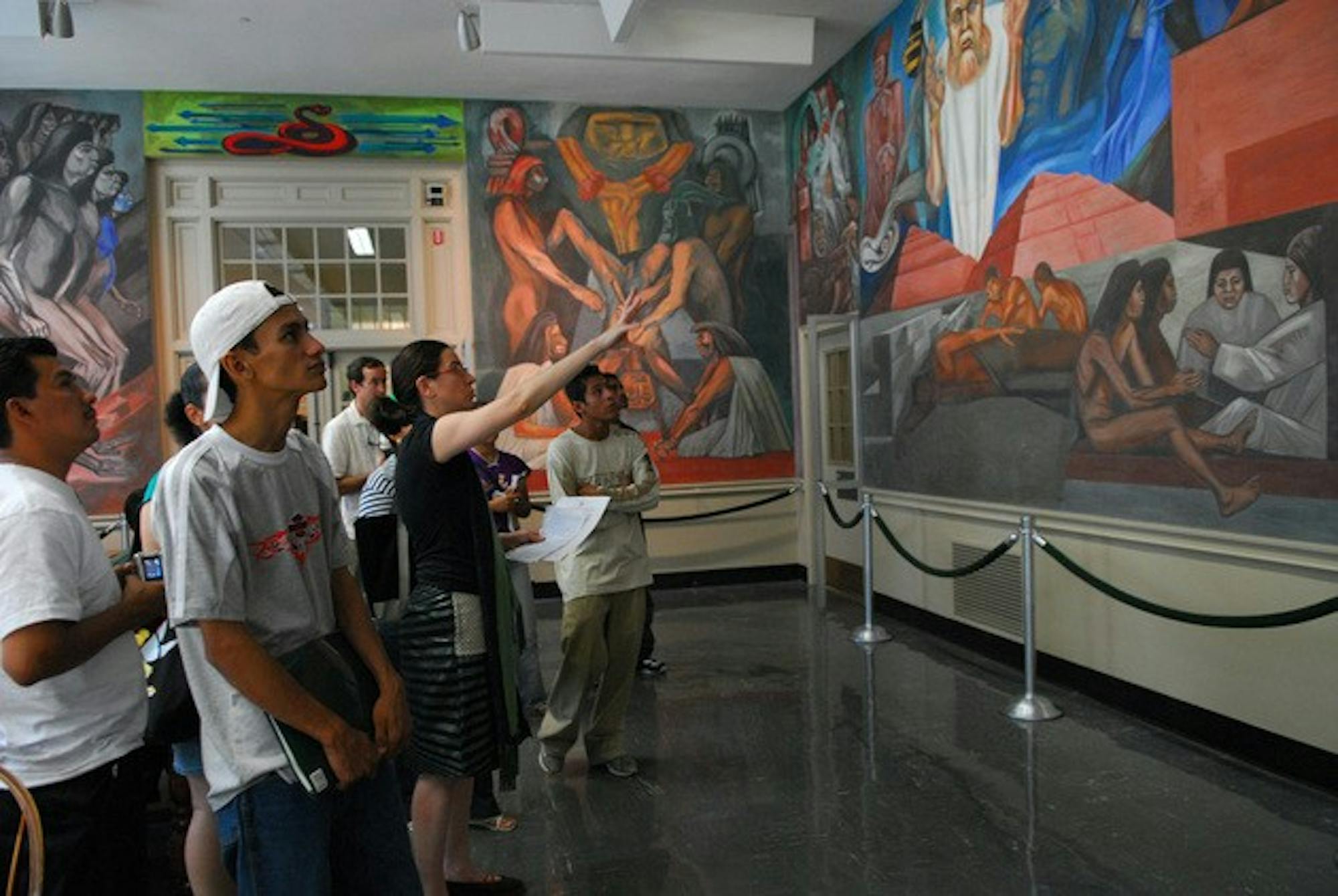Students from the University of the Autonomous Region of the Caribbean Coast of Nicaragua will engage in academic and service activities designed to mirror the program in Nicaragua in which Dartmouth students have participated since 2001. For the past six years, students have traveled to Siuna, Nicaragua for two weeks in December. This time, however, the program will bring Nicaraguan students to Hanover.
The six participants -- Dennis Adisman Casildo, William Chacon, Hugo Javier Gonzalez, Ramon Hernandez Martinez, Elizabeth Altamirano Tercero and Marlon Rayo Ordonez -- are accompanied by URACCAN Professor Ivan Jarquin Chavarra and two representatives from the non-profit Bridges to Community program.
The students were chosen for CCESP in an application process similar to that of the Dartmouth program in Siuna. Many of the applicants were familiar with the program through volunteer experience with Bridges to Community, a non-governmental organization that played a key role in facilitating the CCESP trips to Nicaragua. The students acted as tour guides, translators and cultural mediators for Dartmouth students in Nicaragua, helping them communicate with host families and navigate rural regions of Nicaragua.
Two weeks in the jungle created lasting bonds between Dartmouth students and the Nicaraguan volunteers.
"We joke that we are a family," Kenia Ramirez, a Bridges to Community representative said.
Within this close-knit community, the question arose last year as to why the exchange program functioned in only one direction.
"If it's really going to be cross-cultural, it should be a bilateral exchange," said CCESP Student Director Ben Jastrzembski '08, who has twice participated in the Nicaragua program. "I decided I wouldn't try and go back to Nicaragua without trying to bring them here."
Upon returning to campus in January of 2007, Jastrzembski and team member Lizzy Hennessey-Severson '09 worked to make a Nicaraguan student program a reality. In the following two terms, Jastrzembski and Hennessey-Severson drafted a proposal under the guidance of CCESP Faculty adviser Doug Moody and Tucker Foundation Dean Stuart Lord and began the search for sponsorship. The John Sloan Dickey Center for International Understanding became the primary sponsor. The Tucker Foundation, the Allen and Joan Bildner Endowment for Human and Inter-group Relations, the Office of the Provost, Office of Residential Life and Bridges to Community organization also provided funding.
The Office of Residential Life and the Department of Spanish and Portuguese donated the use of La Casa this summer, expressly for the use of the Nicaraguan students and the International Office attended to the difficult task of procuring travel visas for the students. Spanish-speaking professors signed up to lecture on topics ranging from the US Electoral system to the US perception of the "New Left" in Latin American politics.
"This would never have been possible without the collaboration across campus," Lord said.
The "student-generated" program was designed to be more than just a tourist trip. The programs in both the United States and Nicaragua strive to train future global leaders. The students take part in a tightly-scheduled twelve-day program including community service with COVER Home Repair in White River Junction and a presentation for high school students participating in Summer Enrichment At Dartmouth.
Community outreach was emphasized in CCESP at Dartmouth.
"Even though Dartmouth has so many resources... we want to demonstrate to the [Nicaraguan] students that we have social issues with wealth inequality here in the United States," Jaztrzembski said. "Baker-Berry Library and Dartmouth-Hitchcock Medical Center is not the extent of America."
The itinerary does include some extra-curricular activities, such as a visit to the Big Apple Circus, a Red Sox game and Nica Noche, a student-organized Latin America dance party.
"What I'm living now is really like a dream," 20 year-old Elisabeth Altamirano, a Nicaraguan exchange student who saw her first cancer cell through a microscope at DHMC, said. "I never thought that this was going to be possible."
At URACCAN, most of the students who are now visiting Dartmouth study agriculture-related fields in line with CCESP's community development goals in Nicaragua: to educate migrant communities in sustainable agricultural practices and diversification of crops in order to preserve the environment and yield a stable annual harvest. The students will be working with the Environmental Studies department, as well as the Spanish and anthropology departments.
Last year, while visiting Nicaragua, Dartmouth students asked 23 year-old Marlon Rayo if he wanted to see the United States. Of course, he replied, but he added that to do so was impossible. Jastrzembski responded, "Nothing is impossible."
"These are the results: here we are," Rayo said. The hope is that the results of this first run will be assessed favorably and be the "puerta abierta" -- open door -- for URACCAN students.
"I hope this isn't the end. That it will be like a chain," Rayo said.
For now, the program attests to the capacity for campus-wide support for an international project at the urging of a handful of students.
"Altogether, when people have the right will to make something happen, it can happen," Lord said.




